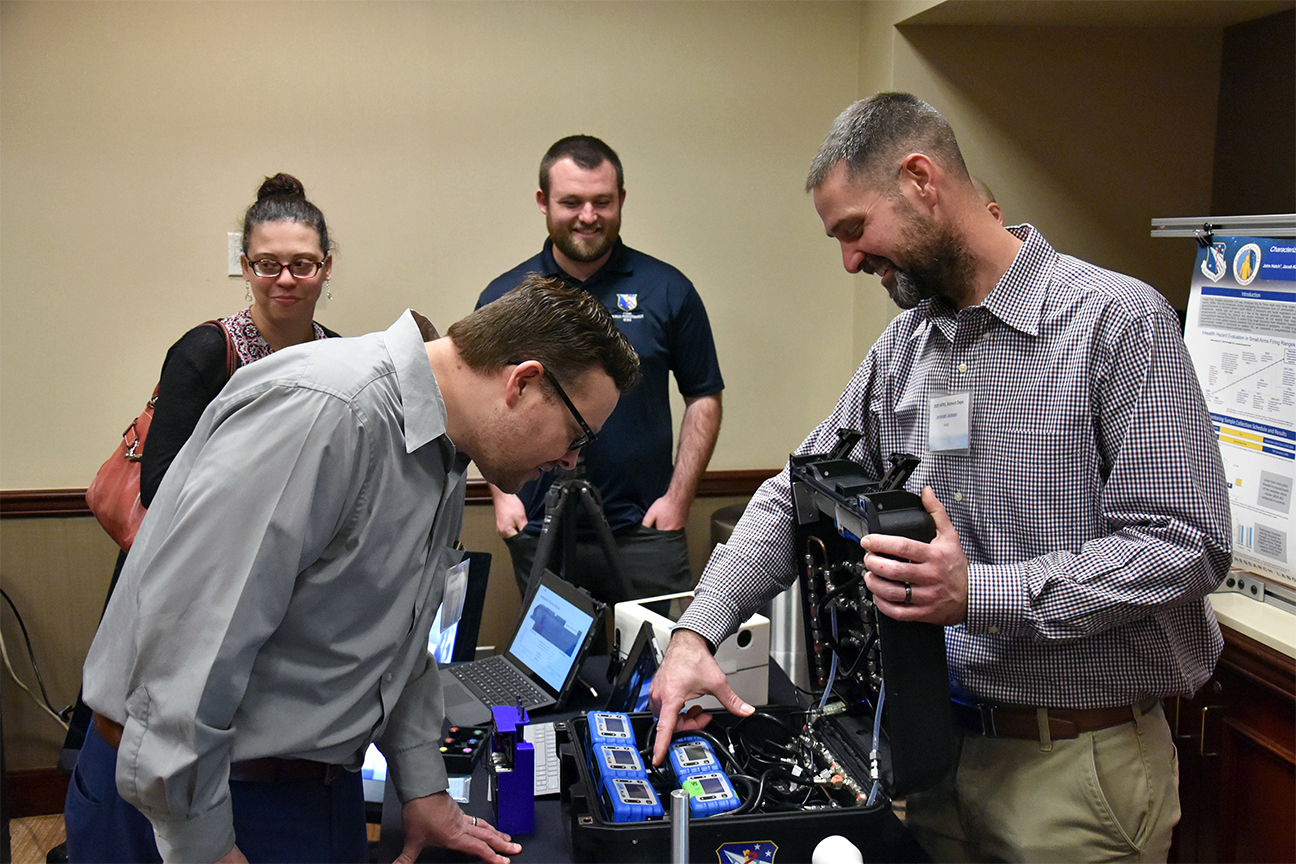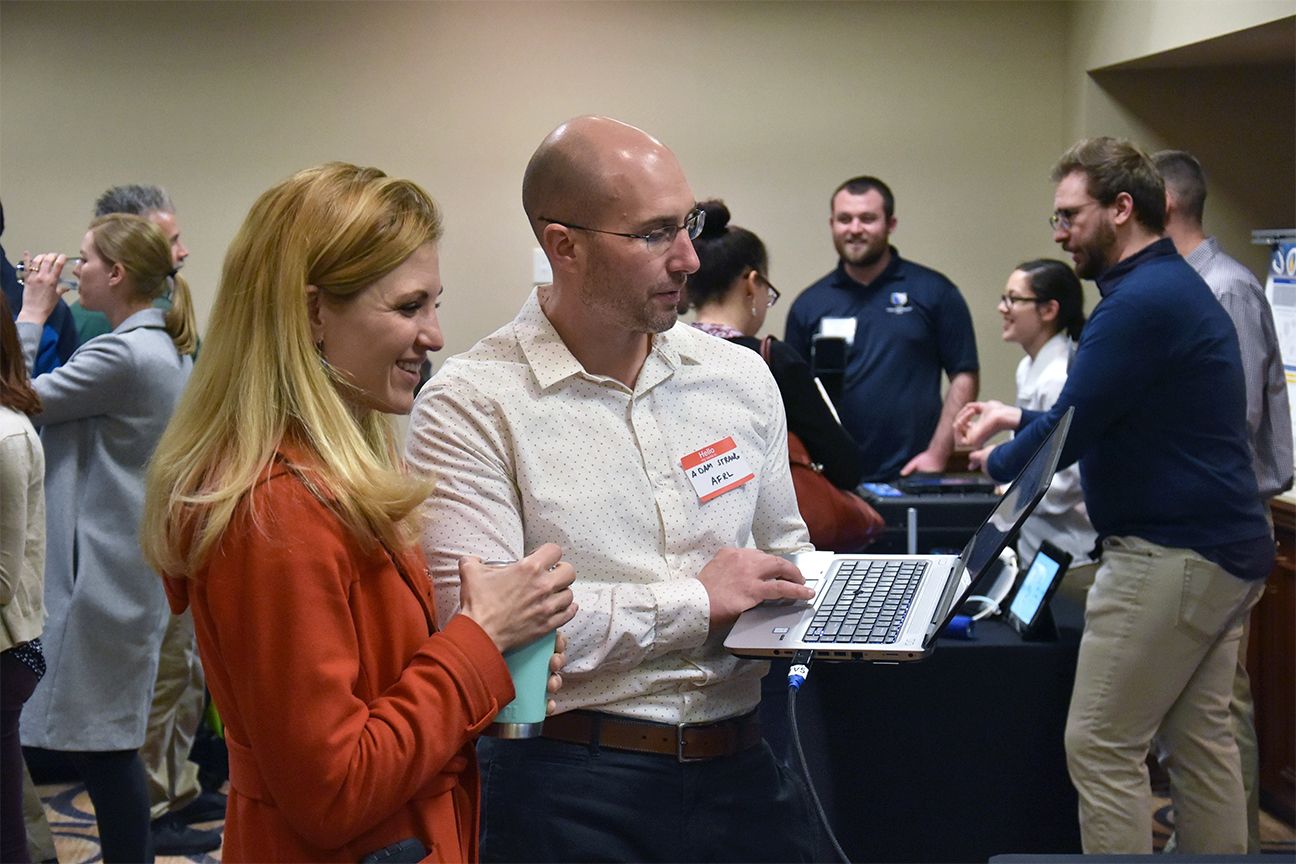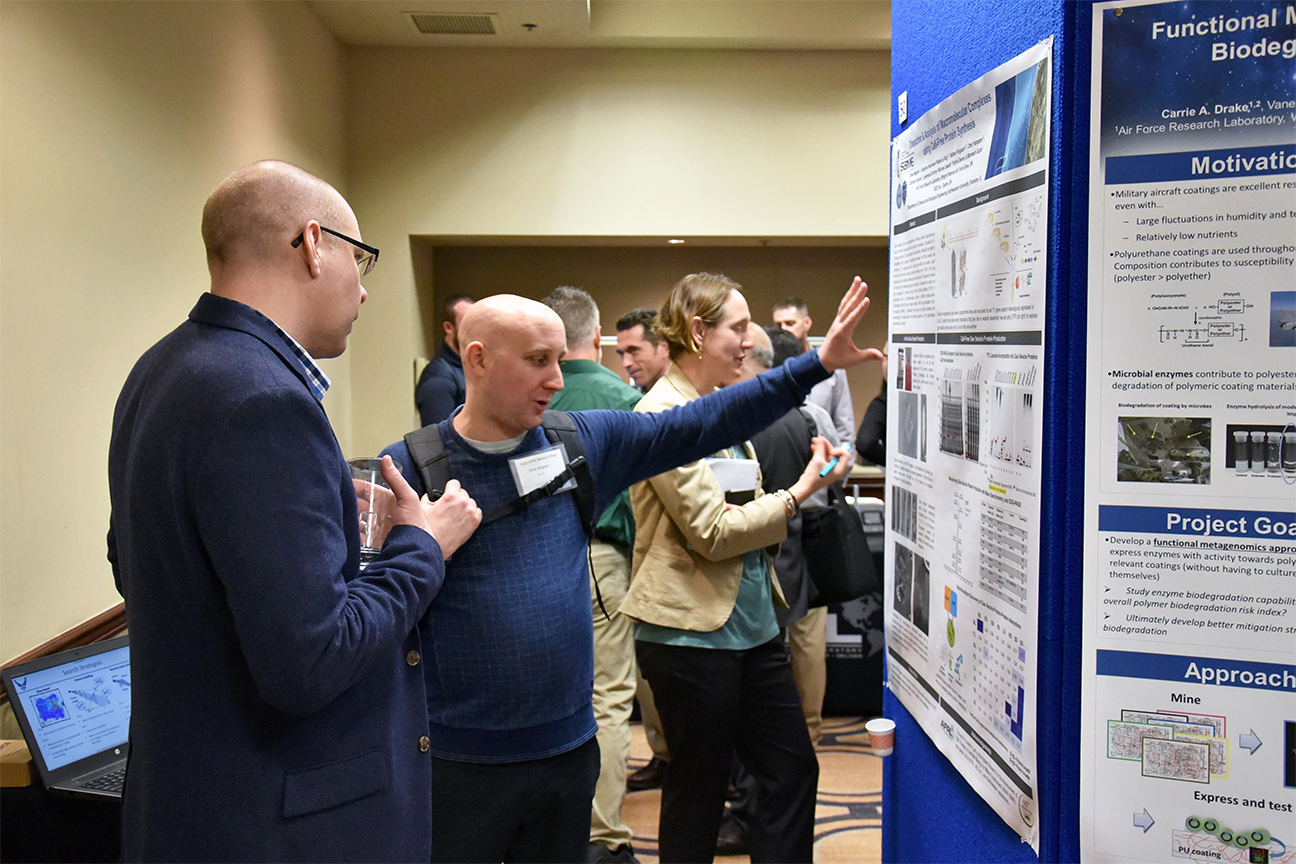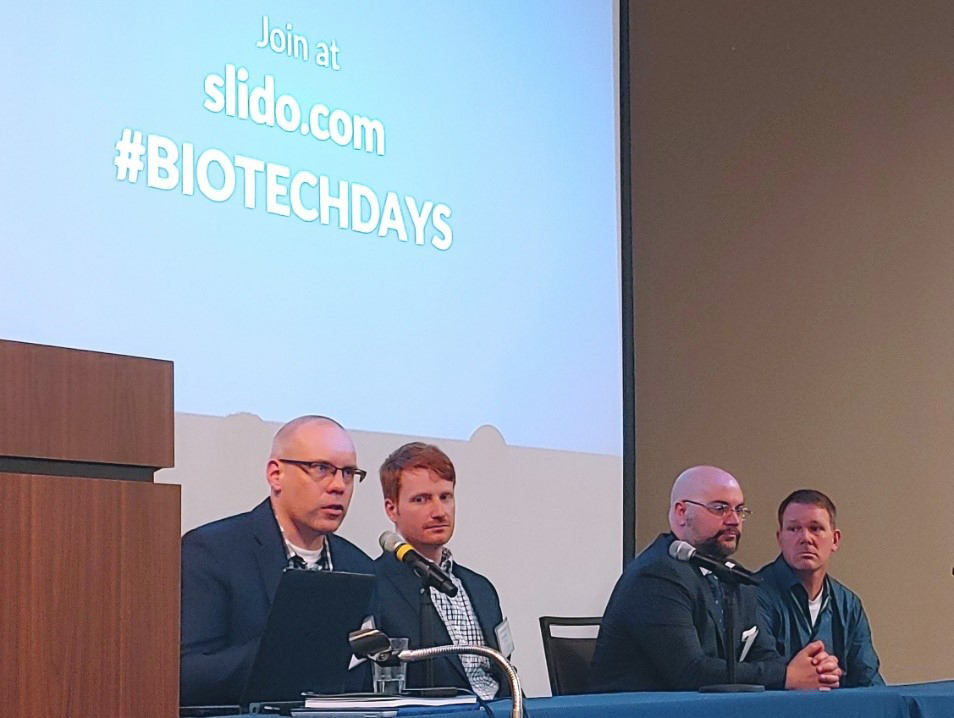WRIGHT-PATTERSON AIR FORCE BASE, Ohio – Biotechnology is a broad term that refers to the use of livings systems or mimicking biological processes to make useful materials, chemical, biosensors, and presents opportunities for defense innovation in a number of domains, including specialty materials manufacturing, novel sensors, warfighter performance optimization and security.
Researchers within the Air Force Research Laboratory are using biotechnology solutions to address Air Force problems such as using synthetic biology to make novel chemical and materials, using insect-inspired solutions to engineer new remote navigation systems and in protecting the health and performance of our airmen.
The National Defense Strategy highlights the role of rapid advancements in biotechnologies in national security and recognized it as one of the “big technology bets.” In 2018, the Biotech Community of Practice was established to provide an enterprise-level perspective of AFRL’s biotech portfolio, coordinate/leverage resources and shape the technical direction of efforts. Led by Dr. Rajesh Naik, Chief Scientist of the 711th Human Performance Wing, the COP advisory panel is made up of leaders from AFRL Technical Directorates and the National Air and Space Intelligence Center.
The COP recognized the need to create a forum for the larger biotech community to interact. As a result, Biotech Days at AFRL, a two-day event in February, was held to communicate the direction of the portfolio to a larger audience and to show its alignment with DoD objectives, encourage technical exchanges and exploration across TD boundaries and foster collaborations that lead to better technical solutions for the Air Force.
The 100+ participants were civilians, military and contractors primarily from the organizations associated with the COP. However, invited guests included university collaborators, leaders from the Office of the Under Secretary of Defense for Research and Engineering, Air Force Warfighter Integration Capability, the Naval Research Laboratory and the U.S. Army Combat Capabilities Development Command (Soldier Center and Chemical Biological Center).
Guests provided important perspectives about biotechnology in the broader Department of Defense community during panel discussions. Podium talks covered the spectrum of biotechnology efforts across AFRL. The poster and demonstration session was a favorite part of the AFRL Biotech Days. Participants were able to absorb information directly from experts regarding research projects and technology transitions.
“Researchers at AFRL have made significant contributions in their respective areas of biotech, yet few have opportunities to engage with scientists in other technical directorates,” said Dr. Claretta Sullivan, Materials and Manufacturing Directorate scientist, program manager and event co-organizer. “Since we know that unexpected and sometimes transformational solutions result from unlikely collaborations, we wanted to create a space for those interactions to occur. Judging from the feedback and interest in making this an annual event, I think we did exactly that.”
One of the topics included was Confined Space Monitoring. Confined space maintenance for inspections and repair is a potentially hazardous activity that requires specific procedures to ensure the health and safety of maintainers. Operations are labor-intensive requiring a minimum of two personnel to accomplish. With the new Confined Space Monitoring System project, wearable monitoring technology offers the opportunity to provide equivalent or improved safety and performance with significant reductions in required manpower.
Measuring Bioeffects from Exposure to Directed Energy was also briefed. This is focused on understanding the effects and mechanisms by which electromagnetic fields interact with biological systems to positively or negatively affect their normal behavior. The group is evaluating the thermal and field-driven effects from the energy emanated in the radiofrequency range.
This meeting displays a model of how other portfolios might build a local community and foster interactions across TD boundaries.
“Bringing the AFRL biotech community together provides us with an incredible opportunity to function as one AFRL aligned collectively to Air Force priorities and to deliver game-changing capabilities using biotechnology,” said Naik. “I am excited about the future for biotech in AFRL and we have an energized and innovative workforce that is poised to deliver those game changing solutions for Air Force needs.”

Dr. Rhett Martineau, UES/Materials and Manufacturing Directorate, visits the Environmental Assessment team demo described by Jerimiah Jackson, UES/711th Human Performance Wing. Dr. Amy Breedon and Jacke Kirsch, UES/711th Human Performance Wing, observe. (U.S. Air Force photo/Spencer Deer)

Dr. Adam Strang demonstrates Airman Data Analysis and Performance Tracking System to Dr. Jill McQuade, one of the Biotech Days organizers. Both are from the 711th Human Performance Wing. (U.S. Air Force photo/Spencer Deer)

Dr. Drew Wagner (UES/Materials and Manufacturing Directorate) and Dr.Matthew Dickerson (Materials and Manufacturing Directorate) discuss the recombinant production of sub-micron gas vesicles and their potential in military applications. (U.S. Air Force photo/Spencer Deer)

Members of a multi-directorate panel discussed various topics. Scientists Dr. Matthew Dickerson (Materials and Manufacturing Directorate) and Dr. Zachary Reinert (UES/Materials and Manufacturing Directorate) discussed advances enabled by synthetic biology in military applications of high-temperature composites and energetic materials. Dr. David Burch (711th Human Performance Wing) decribed how researchers are transforming aeromedical evacuation for the multi-domain battlespace. Dr. Matthew DeWitt (University of Dayton Research Institute) talked about how he is collaborating with scientists in the Aerospace Systems Directorate to develop hydrocarbon fuels for high performance of high speed flight systems. (Courtesy photo)

